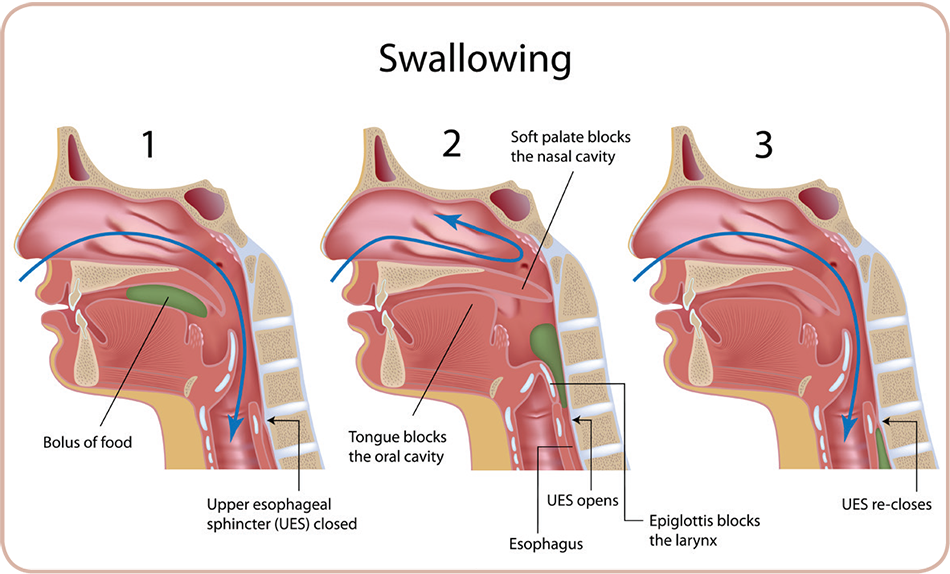Speech Therapy involves the evaluation and treatment of people who have trouble with speech, language, cognitive function, as well as swallowing disorders. Adults can develop these problems after a stroke, traumatic brain injury, concussion, or a neurological disease such as Parkinson’s disease, Alzheimer’s disease, ALS or multiple sclerosis. Having a swallowing disorder, also known as dysphagia, is a challenging condition that can greatly affect a person’s quality of life.
Signs that a person may be struggling with a swallowing disorder:
- Coughing during or right after eating or drinking
- Wet or gurgly sounding voice during or after eating or drinking
- Extra effort or time needed to chew or swallow
- Food or liquid leaking from the mouth or get stuck in the mouth
- Recurring pneumonia or chest congestion after eating
- Weight loss or dehydration from not being able to eat enough

How Can Speech Therapy Help?
Speech-Language Pathologists (SLP) are uniquely qualified to help people who are experiencing problems with eating and drinking. During treatment, a Speech-Language Pathologist may recommend:
- Swallowing exercises to improve muscle movement
- Strategies to help swallow more effectively
- Food and liquid textures that are easier and safer to swallow
Speech and language disorders affect more than 20 million Americans. Speech Therapy can help anyone struggling with speech, language, cognitive function, or swallowing disorders. Talk to your doctor today about how Speech Therapy can help you have a better quality of life!
References: nidcd.nih.gov
